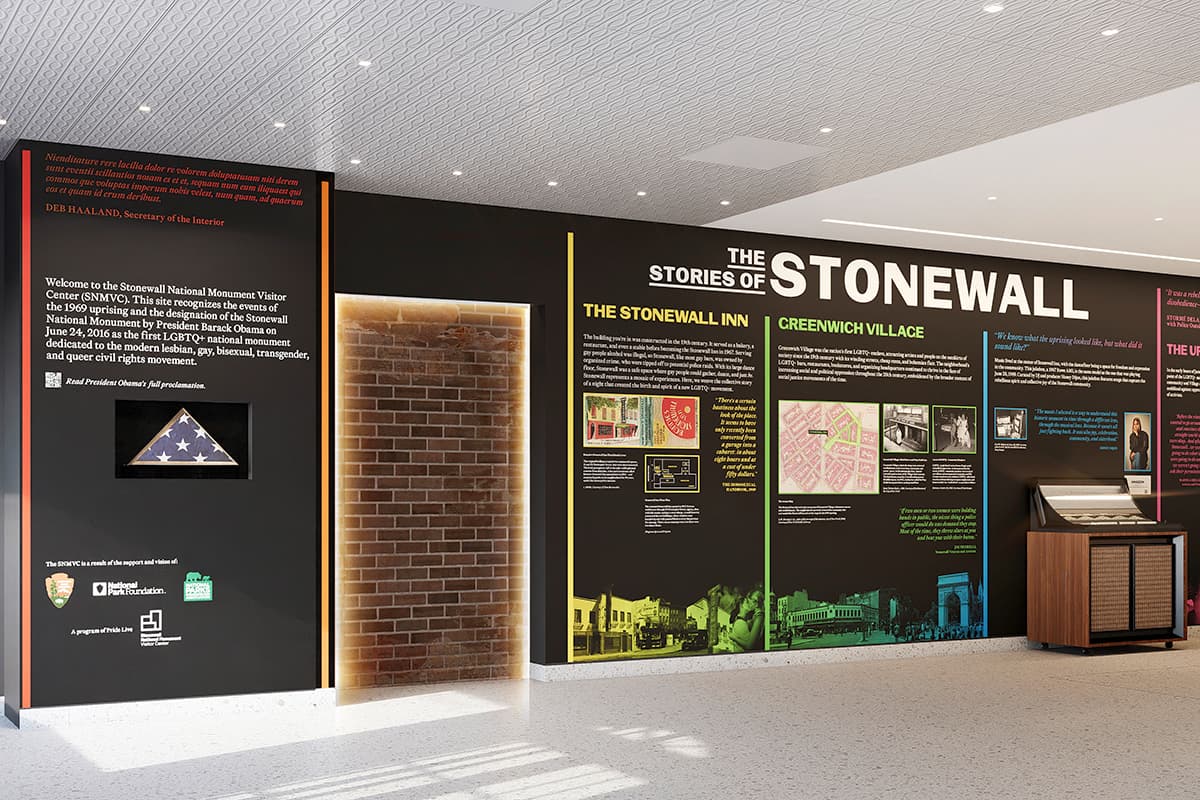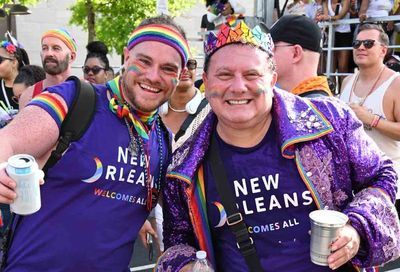Yance Ford’s history-making documentary “Strong Island” is a search for justice
With the Oscar-nominated Strong Island, transgender filmmaker Yance Ford gives his brother the fair treatment the U.S. legal system failed to provide

From bitter, bloodied ground, lush gardens sometimes grow. And so it would represent a profound reversal of fortune if some lasting good were to blossom from the senseless death of William Ford, Jr., a young, unarmed black man who was shot and killed in a Long Island auto body shop one dark night in 1992.
The teenaged white man who shot Ford wasn’t convicted of a crime, or even tried for killing the beloved son and brother, as a grand jury declined to indict him. But William’s brother, filmmaker Yance Ford, who says he was changed forever that night, found the strength to tell the story in the acclaimed 2017 documentary Strong Island.
The film has produced significant rewards for Yance since its world premiere at the 2017 Sundance Film Festival, where it garnered a Special Jury Prize for Storytelling. A few weeks ago, it earned an Academy Award nomination for Best Documentary Feature, making Ford the first openly transgender director ever nominated for the award, and only the fourth transgender person nominated in any Oscar category.
Ford and his partner Amanda shared the watershed moment on social media, posting a video of their ecstatic live reaction to the nomination announcement. Their excitement continues leading up to the March 4th ceremony in L.A., which the couple plans to attend. “I went for my first tux fitting on Wednesday evening, after the nominations came out,” says Ford, who regards the awards as icing, not the cake.
His chief purpose for making Strong Island, currently streaming on Netflix, wasn’t to earn awards, but to provide a voice for his family’s grief — particularly that of his mother, whose passionate presence galvanizes the film — as well as their fight for justice. Ford never anticipated that his nuanced examination of the deadly incident, and the ensuing investigation that centered William as a suspect in his own killing, would be so heartily received.
“I think I played the more conservative route, which was to focus on making the film that I wanted to make as well as I could make it,” says Ford. “And collaborating as much as I could with my creative team, and to not think about the outcome before the film was finished. I think that sometimes you can get ahead of yourself when you start thinking about how the film is going to be received.
“I knew the impact I wanted it to have, but I tried really hard not to attach myself to any outcome because the world is a fickle place, and I would rather not set myself up for disappointment by expecting things to happen. So, as you can imagine, this year has been an incredible ride for me.”
As long as the Academy Awards remain the most high profile recognition a filmmaker can receive from their peers, milestones like Ford’s nomination still matter in the industry and the outside world.
While sharing his feelings on what such noteworthy firsts might mean for LGBTQ filmmakers in 2018, Ford also discusses his ongoing campaign to utilize Strong Island as an educational tool for young people and law enforcement. Ultimately, he’s on a mission to ensure that what happened to William and his family doesn’t keep happening again and again.

METRO WEEKLY: How much, if at all, does the final film differ from the statement that you originally set out to make?
YANCE FORD: At the beginning I set out to ask the question, “What happened?” And I found out relatively quickly that the answer to “What happened to my brother?” was a historical one. Like thousands of other African Americans, his life was taken because a white person was afraid of him. Period. Full stop. And once I realized that his death fell on this sort of unbroken line of history, I pivoted to the question of, “Why did it happen?” and, “What happened afterward?” When I pivoted into the “Why,” that’s when the richness and complexity of the story really began to reveal itself.
I had a lot of rules at the beginning of the film. One of the rules was that I would never be in it. One of the rules is that there would be no white characters in the film. And one of the rules was that my sister would never be in the film. And at the very beginning we had a great film, but it was really about my mother’s grief. When I took a step back for a few months, an unexpected plot turn really caused me to ask myself, “What is the film that I need to make?” So when this plot turn happened, it really threw me for a loop. I came out of this six month hiatus, and the stakes were very different. I realized that I had a great film about my sad mother, but I needed to allow her complexity into the movie. I needed to allow her anger into the movie. I needed to allow my sister into the movie, so as not to erase her twice. I needed to put myself in the movie, because as a friend of mine so eloquently said to me, the murder happened to me as well.
MW: Your mother is a fantastic subject on camera, and you get so much out of her interviews because she’s addressing you directly. How did you initially negotiate her participation in the film, and your sister’s participation?
FORD: You know what, it actually wasn’t a negotiation. I think that the fact that everyone said yes when I asked them, it’s really a testimony to the fact that personal storytelling and first-person testimony, having the chance to speak your truth, is really the language and the weapon and the tool of the dispossessed. Because in the absence of due process, in the absence of an unbiased investigation, in the absence of a thorough investigation, my parents were left with, “Sorry, we’re not going to represent this to the grand jury.” And the DA and the police walked away.
Left with that, the only thing that my mother had to right this wrong was to sit and do it herself. And so when I asked her, she said yes right away. Nobody said no. I’m really grateful for the generosity and the trust that everybody in the film put in me.

MW: Do you agree with your mother’s assessment that the case would have turned out differently if the victim, your brother, had been white?
FORD: Oh, sure. And my mother knew that from the beginning, as did my father, as do I. If you listen carefully in the film, I think if you’re being honest with yourself about the country that we live in, you would also arrive at the same conclusion. Because it’s important to remember, my brother visited that auto body garage twice. Each time it was in the immediate aftermath of some sort of confrontation between my mother, his girlfriend, and the staff of the garage. On March 19th was the incident that supposedly scared [the shooter] Mark Reilly into this murderous fear. But Reilly waited three and a half weeks, until my brother visited the garage the second time, and that’s when my brother was shot and killed.
The thing that helps us understand that this irrational, unquestioned, unchecked fear of black bodies really is an undercurrent throughout our criminal justice system is that you hear the detective in the film lay out the timeline so there’s nothing curious about the fact that if someone scares you to death on March 19th, you don’t call the police on March 19th. You don’t go to the precinct on the 20th, or the 21st, or the 22nd, or the 23rd, or the 24th, and on and on. Right? If that [shooter] had been my brother, he would be in jail. My mother knew that, my father knew that, I know that, and anybody who’s honest about the dynamics of race in our criminal justice system knows that as well.
MW: The film prosecutes a strong case on your brother’s behalf, but you also are careful not to paint him as a saint. What’s the overall picture that you wanted to portray of him?
FORD: I felt really strongly while I was making the film, and even more strongly about now that the film that’s out in the world, that there is no such thing as a perfect victim unless that victim happens to be black. Then the burden of perfection is the first thing that gets trotted out. So if you’ve had a parking ticket, if you haven’t voted, if you ran a red light, if you’ve put out your recycling on the wrong day, if you’ve bounced a check ever in your life, if you stole a candy bar when you were ten years old — every little thing about you that is outside of the very, very tight lines that get drawn around African Americans in our culture. Very, very tight lines. If you’ve ever stepped outside of those tight lines, then that is the first thing that we’ll hear about you. Not anything else.
And so I put my brother’s whole self into the film, because despite the mistakes he may have made, despite the fact that he was not perfect, he still did not do anything to justify homicidal response on the night he was killed.
I’m sure there are a lot of white people who will be like, [sarcastically] “Okay, he was an angel, I’m sure he was an angel.” So I was like, “Actually, no, he wasn’t an angel, but I’m sure that if someone had followed your mother home when she went to pick up her car or your girlfriend’s car with your girlfriend, I’m sure you would have gone to that garage as well that evening.”
We put his behavior in the context of the sequence of events. And we let his behavior as well as the sequence of events speak for themselves. And that’s one of the reasons why the film is resonating with people. If you’re from Long Island, for example, those kinds of fender benders, those kind of arguments with mechanics, they happen dozens of times an hour, literally, and people don’t wind up dead.

MW: Speaking of Long Island, you and your cinematographer, Alan Jacobsen, achieve a very unique, haunting look, especially in the footage that’s shot around the auto body shop, and around your parents’ house.
FORD: I had an incredible experience working with Alan. When I met with him, we sat and looked at footage, and I talked about what it meant to shoot the house of the character, and what it meant to shoot the town as being this kind of backdrop that was both idyllic and somewhat sinister. And what it means to shoot absence and longing and loss, and negative space, and people who aren’t there. Alan really just spoke my language. He was able to grab onto it, both hands, and magnify it with his talent.
We shot together for six and a half years, and the interviews were shot over four and a half years. And the incredible look and feel of all the elements of the film has a sort of tactile quality to it. That’s because Alan really found those things, he found the longing, he found the loss, he understood that by shooting the stillness for long enough, that the stillness would give way to grief. And that’s why the film feels so lyrical visually. My mother fell in love with him.
MW: In the film, you talk about not feeling angry. What emotions drove you to make the documentary?
FORD: Someone said to me that the sarcasm really doesn’t translate, and it turns out they were right. Because I’m furious.
The thing about that scene where I say I’m not angry is that it’s followed up with a second or two of my hand punching through a wall. And so there’s that discord of my saying something that seems hard to believe, followed by an outburst of physical violence. Of course I’m angry. Someone got away with taking my brother’s life. And it’s unjustifiable. And the killer didn’t even stand trial. The film, remember, is not about guilty or innocent. The film is really about the fact that a grand jury and the police did not think that there was probable cause to move forward with a criminal investigation. And that kind of thing only happens to black people.
So I’m incredibly angry. But the thing that makes my character really true to who I am is that I’m able to actually speak about that anger with calm tones, and I think those calm tones really freak some people out. For me it’s just the way that I communicate. I don’t need to be angry to be hot. But of course I’m angry, and of course my parents were angry at the failure of the system to deliver any kind of due process for my brother.
The unfortunate thing is that at that time, after adopting all of the responsible middle class avenues of dissent — letters to the FBI, letters to the governor, petitions, and calls, and all sorts of other things — that was it. In 1992, there was no social media, there was no Twitter, there was no Facebook, there was no Black Lives Matter. And so once all of the avenues were exhausted and there was nothing else to do but go home, or to attach a monetary value to my brother’s life and file a civil suit, which my parents refused to do, you’re left with your two kids and your spouse, and a long hard road into the future ahead of you.
MW: Have you heard from any law enforcement, not necessarily about this case, but just as a response to the movie?
FORD: Nope. I haven’t heard from any law enforcement about the movie, and frankly I don’t expect to. I hope to, next year or later on this year, as part of the outreach and community engagement plan around the film, take the film into law schools to help train people who will eventually become the next generation of district attorneys. And obviously I would hope to also share the film with police departments and detectives across the board. But has anybody reached out to me? No. I’m not surprised by that.

MW: You discuss coming out in the movie, but there’s not any explicit discussion of transgender identity or transitioning. What made you decide not to include that, or is it not part of the story you want to tell?
FORD: No, what I think is really interesting is how one of the moments in the film that I think is clearly about gender identity is being missed, and perhaps it’s too subtle. But the phone call that I talk about with my brother, and the fact that he called me to brag about what he had done in sticking up for my mother. If you take a step back from that phone call, you realize that’s the kind of phone call that an older brother makes to his younger brother, and the fact that my brother called me in that moment, and the fact that I say that, he was calling the real me, that’s what I’m talking about. It’s so obvious to me at least, that in that phone call he’s bragging about sticking up for our mother to his little brother.
And even though I did not encounter the word transgender until 1995, three years after William was dead, I was never gender conforming, I had always been gender nonconforming. When I came out as a lesbian, nobody in our family was surprised. And my brother’s friends confirmed to me onstage during a Q&A at a screening of the film that he had told his friends, “Yance is gay, and so nobody think about asking her out to any of the dances, I’m taking her, bottom line.” So he knew that I was queer in that moment. When he called me, that was an affirmation of who I was, but I didn’t have the word for it yet.
So my gender identity is subtext and text in the film. I didn’t have the word for it, but I definitely knew. I identified as male. I began to realize that there was something beyond identity as a butch dyke that felt like home to me, in the way that I hope everyone comes to accept the feeling of home in their own skin. And when I found the word, after being the best butch dyke I can be, that’s when things clicked for me. Unfortunately, William had been dead for three years. But I’ve identified as trans for much longer than is evident in the film.
MW: What does it mean to you to be the first openly transgender director to be nominated for an Academy Award?
FORD: It’s awesome. I’m flat out fucking excited that the film got nominated. Because so many people worked for so long to make this film a reality. And so many funders believed in this film for so long, that to have this be the payback and the return of people’s faith in an end investment is an incredible gift that I never imagined I would be able to give back. And being the first trans director to be nominated for an Oscar is, frankly, something that goes beyond pride. Because it’s me as my authentic self, in the world. And even though it’s not new to people in my life, it’s new in the public sphere.
I fully recognize the importance of being out. And I also recognize that not everybody can be out. And that for those of us who can be out, and not lose our jobs or our places to live or be in physical danger, I think that it’s an obligation. If by being out and by making history in this way as the first trans director, in the same year where the first trans actress-led film gets nominated for foreign language film — Daniela Vega is incredible in A Fantastic Woman — I feel that not only is this an incredible moment for me, it’s an incredible moment for our community.
This year’s Oscars are an incredible moment for Daniela and for Mudbound‘s Rachel Morrison, who’s the first woman cinematographer to be nominated. It’s huge. And in this time when there’s so much hate-mongering so as to distract us all from all of the things that are being dismantled under our noses, it’s huge to be able to walk the red carpet as the first trans director, and to do it with pride, and to do it with my head held high, and to do it being able to say this is me, take it or leave it. And if you’re gonna leave it, close the door on your way out.
Strong Island is currently streaming on Netflix. The Academy Awards will be broadcast live Sunday, March 4, at 8 p.m. EST on ABC.
Support Metro Weekly’s Journalism
These are challenging times for news organizations. And yet it’s crucial we stay active and provide vital resources and information to both our local readers and the world. So won’t you please take a moment and consider supporting Metro Weekly with a membership? For as little as $5 a month, you can help ensure Metro Weekly magazine and MetroWeekly.com remain free, viable resources as we provide the best, most diverse, culturally-resonant LGBTQ coverage in both the D.C. region and around the world. Memberships come with exclusive perks and discounts, your own personal digital delivery of each week’s magazine (and an archive), access to our Member's Lounge when it launches this fall, and exclusive members-only items like Metro Weekly Membership Mugs and Tote Bags! Check out all our membership levels here and please join us today!




























You must be logged in to post a comment.